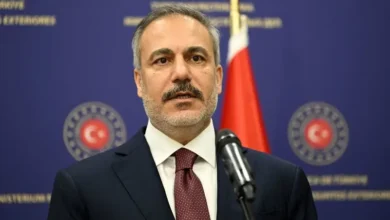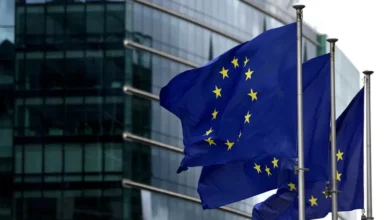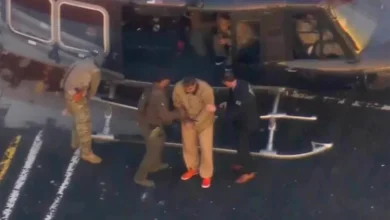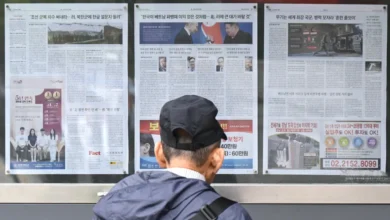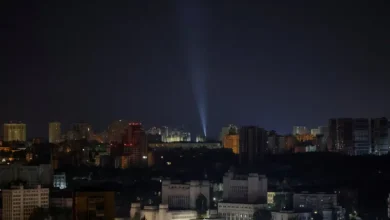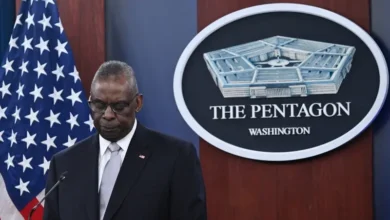Israel ready to ‘flex muscles’ against Hezbollah if diplomacy fails: UN ambassador
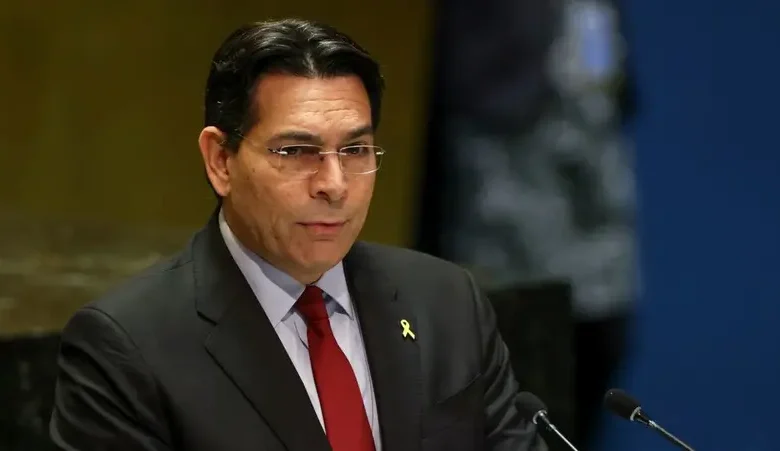
Israel is prepared to “flex its muscles” and take further military action against Hezbollah if diplomatic efforts fail to stop attacks from Lebanon, Israel’s Ambassador to the United Nations Danny Danon said in an exclusive interview on Monday.
He also warned members of the armed group that “they cannot hide” adding that that Israel “will use our technology, use our might” in comments made as tensions escalate along Israel’s northern border.
Explosions rocked Lebanon on Monday as Israel’s military launched its most extensive assault on the country in nearly a year, killing at least 274 people and injuring over 1,000 in one day, according to Lebanon’s Ministry of Health.
The conflict between Israel and Hezbollah intensified over the past week following a series of explosions – attributed to Israel – involving pagers and walkie-talkies used by the militant group.

Escalating tensions with Hezbollah
Danon traced the current conflict with Hezbollah back to the days after the unprecedented October 7 invasion, when Hamas launched an armed incursion into Israel killing nearly 1,200 people and taking 251 hostages. On October 8, a day after the attack, Hezbollah fired rockets into northern Israel as a show of support for Hamas.
“Hezbollah decided to launch attacks against Israel without any provocation, and the only reason was a statement from Mr. [Hezbollah leader Hassan] Nasrallah himself, saying that he wants to show sympathy and solidarity with Hamas,” said Danon.
The ambassador emphasized Israel’s preference for a diplomatic solution but warned of potential military action.
“We don’t want a war with Lebanon,” he said. “We think we can avoid that, but Hezbollah will have to stop attacking Israel. Otherwise, we will have no choice,” Danon said.
Hezbollah has insisted the group’s attacks against Israel are an act of solidarity with the Palestinian people and are in retaliation for Israel’s military action in the besieged Gaza strip.
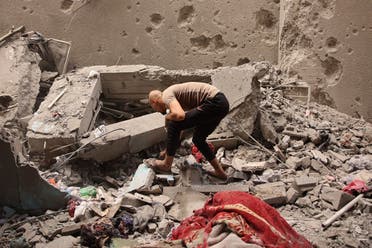
New phase in conflict
Addressing recent statements by Israeli Defense Minister Yoav Gallant about “opening a new phase in the war,” Danon explained Israel’s shift in focus toward Hezbollah.
“We were very patient. We waited for diplomacy to bring results, and we still prefer diplomacy,” Danon said. However, he added, “We intend to take the required actions in order to stop the situation where you have a major part of Israel under fire every day. I think any other country would do the same.”
The ambassador’s comments come as Israel launched its most widespread wave of airstrikes against Hezbollah, warning Lebanese citizens to evacuate areas where the armed group was storing weapons.
‘Eliminating’ Hamas
Danon reiterated Israel’s goals in the ongoing conflict, stating, “The goals are very clear: to bring back the hostages. As we speak, 101 Israelis are in hostage almost for a year. It’s beyond imagination to think about the atrocities that they are suffering.”
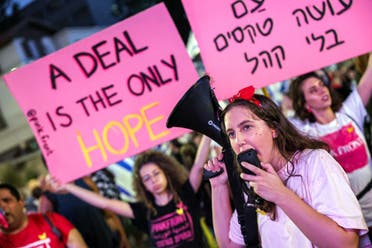
“We are determined to eliminate Hamas, and we are moving forward on that front. And at the same time, we will do whatever is necessary to bring the Israelis back to the north.”
However, he addressed the complexity of the situation with Hamas, saying, “With Hezbollah, it’s much easier. Basically, they just have to stop shooting at us. With Hamas, it’s more complicated because they don’t want to leave Gaza. They don’t want to give away the control they have over Gaza.”
Iran’s role, regional tensions
This week, following the emergency UN Security Council briefing on the tensions between Israel and Lebanon, Iran’s ambassador to the UN claimed that the attack against their ambassador in Lebanon – Mojtaba Amini – who was injured in the explosions was “an act of terrorism and a violation of the rules of international law.”
Danon said he was “shocked” at the statements, stating, “We have no conflict with Iran. When you look at the map, you see the distance between Israel and Iran. We have no conflict over land, over resources.”
He said it must be asked why Iran is spending billions of dollars to fund proxy groups in order to isolate Israel.
He accused Iran of seeking regional dominance, saying, “They want to dominate the Middle East, to control the world. And they’re starting with Israel. They took over Lebanon. They took over Syria. Now they’re trying to take over more countries in the Middle East, but we are strong enough to push back.”
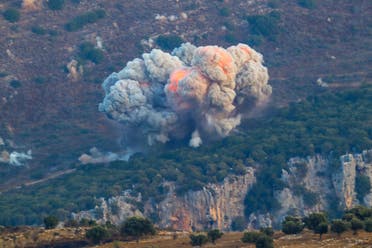
Responding to accusations made this week by Jordan’s foreign minister Ayman Safadi that Israel is pushing the Middle East to the brink of a regional war, Danon countered, “You have to look at the facts – it wasn’t us attacking anyone.”
Referring to October 7, he added: “It was an unprovoked attack. Israelis were massacred. Same with Lebanon. We didn’t attack Lebanon or Hezbollah, they started to attack Israel. You cannot ignore the facts. We are being attacked – then we are being blamed. But we defend ourselves.”
Changing nature of warfare
While not commenting directly on recent attacks in Lebanon, saying Israel is not publicly commenting on the wave of explosions involving wireless devices last week, Danon highlighted Israel’s role in targeting Ibrahim Akil, the commander of Hezbollah’s elite Radwan unit, who was killed in an airstrike Friday, describing him as “a notorious terrorist who murdered more than 300 Americans back in the 80s.”
The ambassador suggested this action demonstrates Israel’s capabilities and determination, stating, “We served justice, and we are proud of that. We will continue to do that. They should know that we will get to them; they cannot hide.”
UN role, diplomatic efforts
Reflecting on his return to the role of permanent representative of Israel to the United Nations, Danon expressed optimism about the future.
“Once we finish the war, we will bring victory. We can speak about peace and, inshallah, we will have peace with more Arab countries,” he said. “We pray for that day, and we know that they are motivated Muslims, that they don’t want to support Iran, they don’t want to support radical ideas.”
However, Danon criticized the UN’s response to the hostage situation, stating, “It’s shameful that the UN, a year after, was not able to pass a resolution condemning October 7, calling for the release of the hostages.”
Anniversary of October 7 attack
As the one-year anniversary of the October 7 Hamas attack approaches, Danon acknowledged the ongoing hostage situation and continuing hostilities were not what he had envisioned.
“We all hoped that by now we would bring back the hostages,” Danon said. “We operate in a very, very complicated situation where you have terrorists hiding behind civilians.”
“You know, we take the precautions to try to minimize civilian casualties. That’s why it took us a year. But we are still being criticized, so I think we should continue. We have to do whatever we can to bring them back home. It’s the obligation of the government of the country to its people, and we are determined to achieve it.”
UN General Assembly, will Netanyahu attend?

Danon also addressed whether Israeli Prime Minister Benjamin Netanyahu would travel to New York this week to the high-level General Debate, as mooted earlier this month.
Danon said: “Well, we still don’t know, because of the situation in Lebanon…He was supposed to arrive on Tuesday. Now he’s scheduled to arrive on Thursday and speak on Friday. But we have to see what’s happening on the ground, and we will see, maybe in 24 hours, if he is coming or not.”
